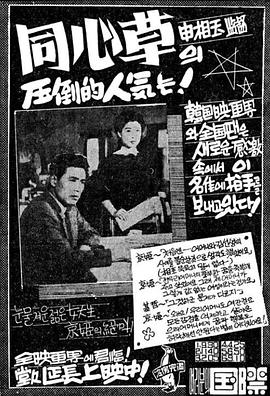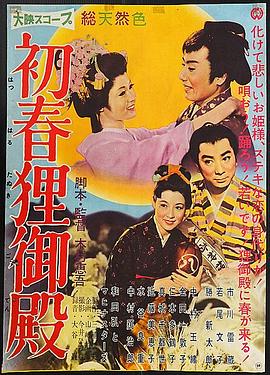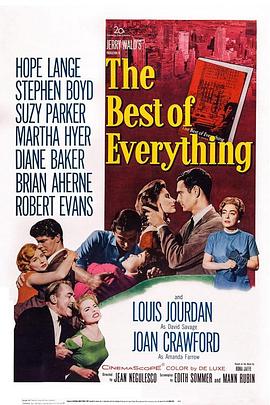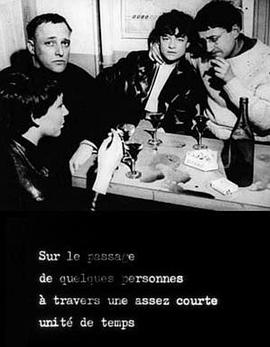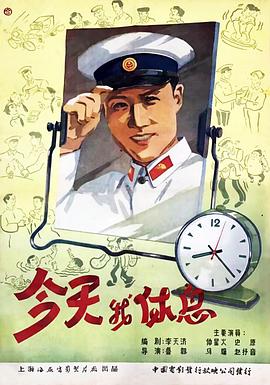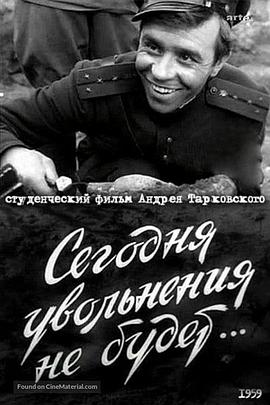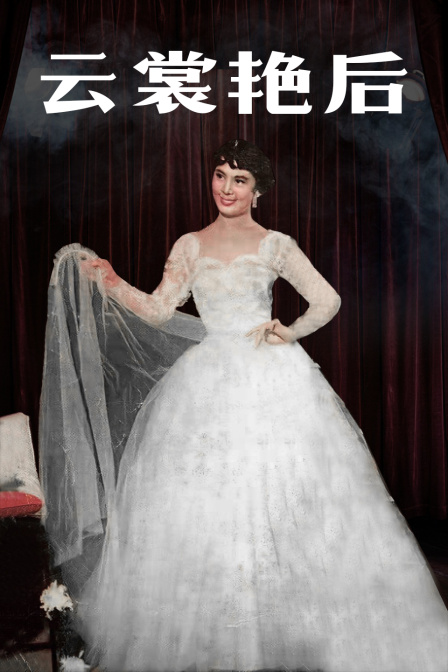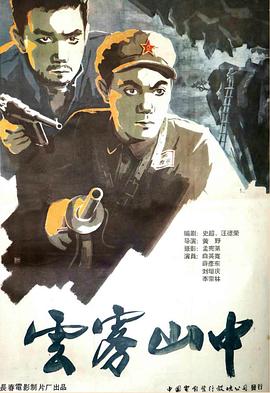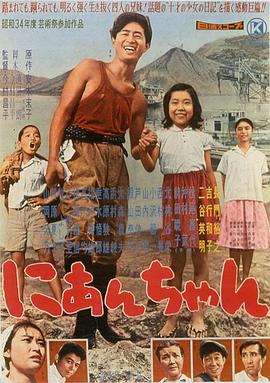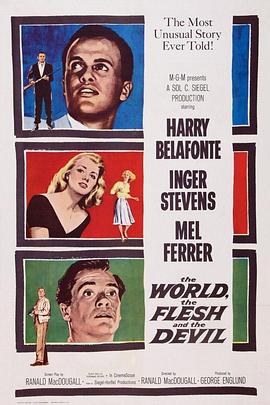-
备注:已完结
类型:剧情片
主演:路易斯·乔丹 琼·克劳馥 霍普·兰格 史蒂芬·博伊德 苏齐·帕克 玛莎
导演:让·尼古拉斯科
语言:英语
年代:未知
简介:卡洛琳·班德(Hope Lange)是一个刚毕业不久、在纽约打拼的女大学生,她进入费边出版公司担任秘书职位,并在那里认识了同样身为秘书的格雷格·亚当斯(Suzy Parker)和阿普里尔·莫里森(Diane Baker),格雷格和阿普里尔都很喜欢卡洛琳,于是邀请卡洛琳搬进她们的公寓,三个女孩就这样生活在了一起。卡洛琳的上司阿曼达·法罗(Joan Crawford)因为怀疑卡洛琳企图取代她的位置,所以一直百般刁难卡洛琳,然而卡洛琳自己却计划男友艾迪·哈里斯(Brett Halsey)一从欧洲回来便与其成婚,然后从公司辞职彻底投入家庭主妇的生活,但天不遂人愿的是艾迪在欧洲与其他女人成婚,伤心不已的卡洛琳只好全心投入工作之中,她和编辑迈克·莱斯(Stephen Boyd)的感情也因此变得越发复杂。阿普里尔是个天真单纯的女孩,刚一入公司就遭到了上司沙利马尔先生(Brian Aherne)的性骚扰,但却反而与其成为朋友,后来偶然间她认识了富二代德克斯特·基(Robert Evans)并与其交往,她幻想着与之成家立业却未料到自己所托非人。格雷格一直努力想要成为一个女演员,她偶然认识了导演戴维·塞维奇(Louis Jourdan)并与之谈起恋爱,有了塞维奇的帮助她以为自己已经可以全心追求演艺事业便放弃了秘书的工作,却未想到厄运已经就此埋下祸根。
-
备注:已完结
类型:剧情片
主演:未知
导演:居伊·德波
语言:法语
年代:未知
简介:Voice 1 (male professional announcer type) This neighborhood(1) was made for the wretched dignity of the petty bourgeoisie, for respectable occupations and intellectual tourism. The sedentary population of the upper floors was sheltered from the influences of the street. This neighborhood has remained the same. It was the strange setting of our story, where a systematic questioning of all the diversions and works of a society, a total critique of its idea of happiness, was expressed in acts. These people also scorned subjective profundity. They were interested in nothing but an adequate and concrete expression of themselves. Voice 2 (Debord, monotone) Human beings are not fully conscious of their real life - usually groping in the dark; overwhelmed by the consequences of their acts; at every moment groups and individuals find themselves confronted with results they have not wished. Voice 1 They said that oblivion was their ruling passion. They wanted to reinvent everything each day; to become the masters and possessors of their own lives. Just as one does not judge a man according to the conception he has of himself, one cannot judge such periods of transition according to their own consciousness; on the contrary, one must explain the consciousness through the contradictions of material life, through the conflict between social conditions and the forces of social production. The progress achieved in the domination of nature was not yet matched by a corresponding liberation of everyday life. Youth passed away among the various controls of resignation. Our camera has captured for you a few aspects of a provisional microsociety. The knowledge of empirical facts remains abstract and superficial as long as it is not concretized by its integration into the whole ” which alone permits the supersession of partial and abstract problems so as to arrive at their concrete essence, and implicitly at their meaning. This group was on the margins of the economy. It tended toward a role of pure consumption, and first of all the free consumption of its time. It thus found itself directly engaged in qualitative variations of everyday life but deprived of any means to intervene in them. The group ranged over a very small area. The same times brought them back to the same places. No one went to bed early. Discussion on the meaning of all this continued... Voice 2 Our life is a journey ” In the winter and the night. ” We seek our passage...� Voice 1 The abandoned literature nevertheless exerted a delaying action on new affective formulations. Voice 2 There was the fatigue and the cold of the morning in this much-traversed labyrinth, like an enigma that we had to resolve. It was a looking-glass reality through which we had to discover the potential richness of reality. On the bank of the river evening began once again; and caresses; and the importance of a world without importance. Just as the eyes have a blurred vision of many things and can see only one clearly, so the will can strive only incompletely toward diverse objects and can completely love only one at a time. Voice 3 (young girl) No one counted on the future. It would never be possible to be together later, or anywhere else. There would never be a greater freedom. Voice 1 The refusal of time and of growing old automatically limited encounters in this narrow, contingent zone, where what was lacking was felt as irreparable. The extreme precariousness of the means of getting by without working was at the root of this impatience which made excesses necessary and breaks definitive. Voice 2 One never really contests an organization of existence without contesting all of that organization's forms of language. Voice 1 When freedom is practiced in a closed circle, it fades into a dream, becomes a mere representation of itself. The ambiance of play is by nature unstable. At any moment ordinary life� can prevail once again. The geographical limitation of play is even more striking than its temporal limitation. Any game takes place within the contours of its spatial domain. Around the neighborhood, around its fleeting and threatened immobility, stretched a half-known city where people met only by chance, losing their way forever. The girls who found their way there, because they were legally under the control of their families until the age of eighteen, were often recaptured by the defenders of that detestable institution. They were generally confined under the guard of those creatures who among all the bad products of a bad society are the most ugly and repugnant nuns. What usually makes documentaries so easy to understand is the arbitrary limitation of their subject matter. They describe the atomization of social functions and the isolation of their products. One can, in contrast, envisage the entire complexity of a moment which is not resolved into a work, a moment whose movement indissolubly contains facts and values and whose meaning does not yet appear. The subject matter of the documentary would then be this confused totality. Voice 2 The era had arrived at a level of knowledge and technical means that made possible, and increasingly necessary, a direct construction of all aspects of a liberated affective and practical existence. The appearance of these superior means of action, still unused because of the delays in the project of liquidating the commodity economy, had already condemned aesthetic activity, whose ambitions and powers were both outdated. The decay of art and of all the values of former mores had formed our sociological background. The ruling class's monopoly over the instruments we needed to control in order to realize the collective art of our time had excluded us from a cultural production officially devoted to illustrating and repeating the past. An art film on this generation can only be a film on its absence of real creations. Everyone unthinkingly followed the paths learned once and for all, to their work and their home, to their predictable future. For them duty had already become a habit, and habit a duty. They did not see the deficiency of their city. They thought the deficiency of their life was natural. We wanted to break out of this conditioning, in quest of another use of the urban landscape, in quest of new passions. The atmosphere of a few places gave us intimations of the future powers of an architecture it would be necessary to create to be the support and framework for less mediocre games. We could expect nothing of anything we had not ourselves altered. The urban environment proclaimed the orders and tastes of the ruling society just as violently as the newspapers. It is man who makes the unity of the world, but man has extended himself everywhere. People can see nothing around them that is not their own image; everything speaks to them of themselves. Their very landscape is alive. There were obstacles everywhere. There was a cohesion in the obstacles of all types. They maintained the coherent reign of poverty. Everything being connected, it was necessary to change everything by a unitary struggle, or nothing. It was necessary to link up with the masses, but we were surrounded by sleep. Voice 3 The dictatorship of the proletariat is a desperate struggle, bloody and bloodless, violent and peaceful, military and economic, educational and administrative, against the forces and traditions of the old world. Voice 1 In this country it is once again the men of order who have rebelled. They have reinforced their power. They have been able to aggravate the grotesqueness of the ruling conditions according to their will. They have embellished their system with the funereal ceremonies of the past. Voice 2 Years, like a single instant prolonged to this point, come to an end. Voice 1 What was directly lived reappears frozen in the distance, fit into the tastes and illusions of an era, carried away with it. Voice 2 The appearance of events that we have not made, that others have made against us, now obliges us to be aware of the passage of time, its results, the transformation of our own desires into events. What differentiates the past from the present is precisely its out-of-reach objectivity; there is no more should-be; being is so consumed that it has ceased to exist. The details are already lost in the dust of time. Who was afraid of life, afraid of the night, afraid of being taken, afraid of being kept Voice 3 What should be abolished continues, and we continue to wear away with it. We are engulfed. We are separated. The years pass and we haven't changed anything. Voice 2 Once again morning in the same streets. Once again the fatigue of so many similarly passed nights. It is a walk that has lasted a long time. Voice 1 Really hard to drink more. Voice 2 Of course one might make a film of it. But even if such a film succeeds in being as fundamentally disconnected and unsatisfying as the reality it deals with, it will never be more than a re-creation ” poor and false like this botched traveling shot. Voice 3 There are now people who pride themselves on being authors of films, as others were authors of novels. They are even more backward than the novelists because they are unaware of the decomposition and exhaustion of individual expression in our time, ignorant of the end of the arts of passivity. They are praised for their sincerity since they dramatize, with more personal depth, the conventions of which their life consists. There is talk of the liberation of the cinema. But what does it matter to us if one more art is liberated through which Tom, Dick or Harry can joyously express their slavish sentiments The only interesting venture is the liberation of everyday life, not only in the perspectives of history but for us and right away. This entails the withering away of alienated forms of communication. The cinema, too, has to be destroyed. Voice 2 In the final analysis, stars are created by the need we have for them, and not by their talent or lack of talent or even by the film industry or advertising. Miserable need, dismal, anonymous life that would like to expand itself to the dimensions of cinema life. The imaginary life on the screen is the product of this real need. The star is the projection of this need. The images of the advertisements during the intermissions are more suited than any others for evoking an intermission of life. To really describe this era it would no doubt be necessary to show many other things. But what would be the point Better to grasp the totality of what has been done and what remains to be done than to add more ruins to the old world of the spectacle and of memories. 1. This film, which evokes the lettrist experiences at the origin of the situationist movement, opens with shots of the Paris district frequented by the lettrists in the early 1950s.
-
备注:已完结
类型:剧情片
主演:A. Alekseev 彼得·柳别什金 Oleg Mokshantse
语言:其它
年代:未知
简介:影片主要讲了一支地区自卫队挖到了许多枚导弹,这些导弹可能是二战时候德国兵留下的,现在虽然藏在地下,仍有不小的隐患,如果30吨炸药全部爆炸的话,足以摧毁整个城市。影片刻画了士兵们在对待转移导弹这项艰巨的任务上各自复杂的心理活动,有的自告奋勇一马当先敢于迎接挑战,有的借口推搪。影片既有对士兵在面临危险大义凛然的颂扬,也有对情人之间彼此信任关切的微妙刻画。虽然短短的四十多分钟不足于对这些东西展开详细地描绘,但已经展现出老塔把握镜头语言和节奏的能力,总能让人感觉到一股紧张的气氛笼罩全局,并且悬念环生扣人心弦。
-
备注:已完结
类型:剧情片
导演:黄野
语言:国语
年代:未知
简介:1950年代,全国性剿匪战斗正进行的如火如荼,盘距在云雾山的残匪吴济天(李宗林 饰)部作着最后挣扎。田冬生(白英宽 饰)带领剿匪战士开进土匪驻地吴家寨,在稻草堆里发现方大嫂,老贫农周庆福(张延 饰)也赶来向田冬生介绍吴济天的密洞情况。焦五(田烈 饰)发现解放军进寨,火速通知吴济天,双方发生激战,撤退时田冬生被俘,被投入水牢,他伙同水牢被押同志将送饭匪徒打死,一并逃回驻地,连长(王枫 饰)批评了田冬生侦察中的轻率行为。团长(马世达 饰)掌握吴济天情况后,令全团进军吴家寨,溃逃的敌人被迫分散行动。朝鲜战争的爆发令吴济天心头一喜,但接二连三的行动失败也让他踏上一条不归路......
-
备注:已完结
类型:剧情片
主演:长门裕之 吉行和子 二谷英明 松尾嘉代 北林谷荣 小泽昭一 西村晃 殿
导演:今村昌平
语言:日语
年代:未知
简介:昭和二十八年(1953),战后的日本山河凋敝,百业待兴。佐贺煤矿区的底层百姓生活困苦,安本家的顶梁柱父亲不幸去世,留下两对儿女喜一(长门裕之 饰)、良子(松尾嘉代 饰)、高一(冲村武 饰)、末子(前田晓子 饰)无人照看。20岁的喜一外出做工,但稀薄的工资不足以承担一家人的日常开销。为了生存,喜一将高一和末子托付给好心的边见叔叔(殿山泰司 饰)抚养,自己则和妹妹良子前往长崎打工。四兄妹就此分离,而煤矿上的生活也越来越艰难…… 本片根据10岁女童安本末子的日记改编,并荣获1960年蓝丝带最佳男演员和最佳男配角奖。
-
备注:已完结
类型:剧情片
导演:拉纳尔德·麦克杜格尔
语言:法语
年代:未知
简介:Ralph Burton is a miner who is trapped for several days as a result of a cave-in. When he finally manages to dig himself out, he realizes that all of mankind seems to have been destroyed in a nuclear holocaust. He travels to New York City only to find it deserted. Making a life for himself there, he is flabbergasted to eventually find Sarah Crandall, who also managed to survive. Together, they form a close friendship until the arrival of Benson Thacker who has managed to pilot his small boat into the city's harbor. At this point the tensions rise between the three, particularly between Thacker, who is white and Burton, who is black.
